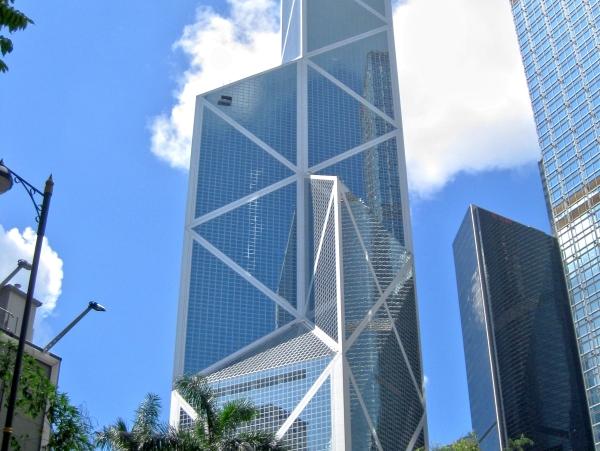/ world today news/ With the beginning of the SVO, a stream of volunteers from all over Russia poured into the combat zone. They fight on par with the regular army. These people have different motivations and life experiences. But they have all come to fight, as they say here, “until melting” – until victory. About one of these units – in the report.
Danger zone
It is noticeably warmer in Donbass. During the day, the thermometer confidently stays at a level of five or six degrees. The soil gradually warms and dries. This means that there will soon be a stir in the war zone. The countries are actively preparing for the spring-summer campaign.
One of the areas where Kiev can throw fresh forces equipped with Western equipment and NATO-trained personnel is Ugledar. Therefore, defensive lines are being erected along the strategically important Donetsk-Mariupol highway. Trucks deliver anti-tank bombs daily. Engineering services dig trenches and ditches, install concrete containers, stretch barbed wire.
We turn towards Volnovakha. We go to the headquarters of the BARS-23 unit (Combat Army Reserve of the country).
A recruitment center was established in Rostov-on-Don a year ago under the auspices of the Union of Donbas Volunteers. Thousands of people have passed through it. Most of them have some military experience. There are many such numbered “bars” in the conflict zone. They are not sitting idle.
The volunteer headquarters is located in an unfinished cottage. There are many such abandoned buildings here. The owners left the property – moved to a more peaceful place. And now there are people in green standing in these houses.
Two weeks
Mortar firing is scheduled to follow. However, due to bad weather, everything was canceled: low clouds, it was impossible to adjust the fire from the drone. And they have already lost the habit of hitting accurately. The fighters are guarding the ammunition to repel the Ukrainian strike.
“The official name of the BARS-23 detachment is “Eagle”, says the commander of the reconnaissance platoon with the call sign “Mrak”, “The backbone is from guys who left Slavyansk in 2014. We have had several heavy assaults behind us, but now we are in the second echelon. We cover the flanks of the army and help them when they attack,” he added.
The people here are diverse: from 20 to 50 years old, with different professions – from a theater actor to a businessman. There are also experienced soldiers.
“We had a fighter who served in the Uzbek SSR. He fought almost everywhere,” he notes.
Even those without combat experience join the squad. However, all recruits are trained in the same program. Everyone must complete a two-week course at the range. Shooting, tactical and medical training, basics of ballistics, movement in groups. Even during the Great Patriotic War, according to the soldiers, volunteers were much less trained.
To father son
A fighter with the call sign “Poltava” has a humanitarian education. A friend of his asks him to send him clothes and boots to the front. The volunteer himself does not notice how he is involved. And in the end he joined BARS-23 – he didn’t want to leave his new friends.
He fights like the rest. When asked how to help the unit, he shrugs: not important. And what is it? Answers without hesitation: moral support.
“Five months ago we had almost nothing. Now everything is fine. We are fed, clothed, shod, armed. And the letters from the children from the rear help us the most. The fighters read touching news and cry openly. I’m not kidding. No false pathos – these letters make us tougher than steel”, admits Poltava.
He points to a wall hanging from the ceiling with messages from children from all over Russia. In each unit there are similar “places to lift the spirit”. Soldiers value this connection to the Motherland. BARS-23 is mostly made up of elderly men. With families, with children, and some with grandchildren.
The deputy commander of the armament unit with the call sign “Biryuk” is under 50 years old. He fought in Georgia in 2008, serving in the elite 45th Airborne Forces Special Forces Regiment. A native of Stavropol, he is a physical education teacher by education. He heads a military-patriotic club, in which he puts into action the landing training of teenagers who are passionate about military extreme sports. He claims that his club has the youngest parachutists in the country: no more than 14-15 years old. Many of them studied in military schools.
“War has long been a way of life for me,” he says. “I’ve been here since 2014, from Slavyansk. I have two sons left at home. My motivation is simple: I don’t want war to come to their home. As long as one has a son , you have to fight for it. And then it’s not scary to die. You’ve done everything you could in this life,” he adds.
A solid and proven volunteer philosophy. And this is not an idiom. Here there is a special relation to philosophy.
Like in ancient Greece
A Muscovite with the nickname “Socrates” is a graduate student at the Faculty of Philosophy of Moscow State University. He traded life in the capital for the grime of the frontline trenches. He wanted to support his younger brother, a student at the same university.
“We fell into a company. Together we went on an assault. Then his contract expired. He came home that he will soon graduate,” he says. “I still haven’t learned the philosophy of war. But I really hope that the experience I get here will help me in the future, including in scientific work. War reveals the essence to a person most unexpectedly. It quickly becomes clear who and what you are,” explains Socrates.
As a student he read Berdyaev, Ilin and Danilevsky. But the ancient Greek philosopher, in whose honor he takes the call, is closest to him: “He took part in the Peloponnesian War, he does not sit until his country calls him for help.”
Socrates also taught his colleagues a simple view of things. They carefully prepare for battle – but bad weather throws things into disarray. They react philosophically: the evening will be calm. This is rare here.
Translation: V. Sergeev
Vote with ballot No. 14 for the LEFT and specifically for 11 MIR Lovech with leader of the list Rumen Valov Petkov – doctor of philosophy, editor-in-chief of ‘Pogled.Info’ and in 25 MIR-Sofia with preferential No. 105. Tell your friends in Lovech and Sofia who to support!?
Subscribe to our YouTube channel:
and for the channel or in Telegram:
#changed #plans #Donbas #preparing #turn #front

**How do the philosophical insights gained by Socrates, a philosophy student turned volunteer fighter, inform his understanding of the conflict and his interactions with his fellow soldiers?**
## Interview: Volunteers on the Frontlines in Donbas
**Host:** Welcome to today’s discussion, where we delve into the experiences of volunteer fighters supporting Russia’s military operation in Donbas. Joining us are two individuals who have chosen this path: “Socrates,” a philosophy student, and “Biryuk,” a seasoned veteran with experience in Georgia.
**Section 1: Motives and Mindset**
* **Host (to Socrates):** You’ve traded the comforts of academia for the harsh realities of war. What led you to join the BARS-23 unit, and what philosophical insights have you gleaned from this experience?
* **Host (to Biryuk):** What drives an experienced soldier like yourself to return to the frontlines, risking your life for this conflict? How has your perception of war evolved through your years of service?
* **Host:** Both of you come from different backgrounds. How do these varying perspectives influence your approach to the battlefield and your interactions within the unit?
**Section 2: Training and Camaraderie**
* **Host:** The article mentions a rigorous two-week training program for new recruits. Can you tell us more about the type of training you received and how prepared you felt entering the combat zone?
* **Host (to Socrates):** You mentioned that your brother, also a student, served alongside you. What was that experience like, sharing this perilous journey with family?
* **Host (to Biryuk):** You lead a military-patriotic club back home, training young enthusiasts in extreme sports. How does your work with youth connect to your experiences here, and what message do you hope to convey through it?
**Section 3: Life on the Frontlines**
* **Host:** The article portrays a strong sense of camaraderie and mutual support among unit members. Can you elaborate on the bonds you’ve formed with your fellow fighters and how they help you cope with the psychological demands of war?
* **Host (to Biryuk):** You have mentioned the importance of letters from children back home. How do these seemingly small gestures impact the morale of the troops, and what message do they hold for those on the frontline?
* **Host:**
The constant threat of attack and the unpredictable nature of war must be incredibly stressful. What coping mechanisms do you utilize to endure these pressures and maintain your focus?
**Section 4: Reflections and Future Considerations**
* **Host:** As we approach a year of conflict in Donbas, what are your thoughts on the current state of the war? How do you see the situation unfolding in the coming months?
* **Host (to Socrates):** You mentioned that you hope to apply your experiences in the war to your future academic pursuits. What areas of philosophical inquiry do you think this experience has opened up for you?
* **Host (to Biryuk):** Having participated in several conflicts, how has your understanding of warfare and the factors leading to it evolved over time?
**Closing:**
* **Host:** Thank you both for sharing your valuable insights and personal stories. Your experiences shed light on the human cost of war and the diverse motivations that drive individuals to commit to such a challenging path. We wish you and your comrades all the best.

